Home Remedies For Itchy Scalp By Dr. Siddharth Gupta
By Dr Siddharth Gupta +2 more

Get,

to manage your symptom
Get your,


4 Cr+ families
benefitted

OTP sent to 9988776655



You’ve successfully subscribed to receive
doctor-approved tips on
Whatsapp

Get ready to feel your best.

Hi There,



Register to Avail the Offer
Send OTPBy continuing, you agree with our Privacy Policy and Terms and Conditions

Hi There,

Trusted by 4 crore+ families

OTP sent to 9988776655



You have unlocked 25% off on medicines




Code: NU25

By Dr Siddharth Gupta +2 more
Table of Contents
Do you get a feeling of constant itch on your scalp? Does it make you uncomfortable? If yes, you might have a problem that needs your immediate attention. An itchy scalp is a condition where you have a strong feeling of irritation in your scalp that makes you want to scratch badly. The medical term for itchy scalp is Scalp pruritus. It is a distressing, although common symptom that is considered a challenging diagnosis. It is commonly associated with psoriasis and seborrheic dermatitis. The itchy scalp condition is not well-studied.1,2

It is very unpleasant to scratch your head in public. Therefore, we have a few natural remedies for itchy scalp, which you can try in the comforts of your home. So, continue reading to find natural solutions for itchy scalp.
Did you know?
Itchy scalp may be caused due to several reasons. Most common causes include:
Also Read: Effective Home Remedies For Dry Scalp
You might experience an itchy scalp without dandruff and other situations where your head has lice or probably dermatitis, which needs attention from a dermatologist. This situation might need an intervention with a topical agent like steroids, with treatment sometimes for a period of around four to six months.
Dr Ashish Bajaj – M.B.B.S, M.D. in Clinical Pharmacology and Toxicology
Although itchy scalp is a diagnosis, it is also a symptom that helps diagnose other scalp diseases. Most common symptoms that are associated with itchy scalp are given below:
Also Read: Best Home Remedies for Oily Scalp and Hair
There are various natural home remedies for itchy scalp that you may try.

Walnut leaves have been used in traditional medicine. It may be a suitable remedy for itchy scalp. The leaves may be useful for external applications such as itchy scalp, dandruff, as an emollient (soothing agent), and to soothe itching in skin disorders.3A decoction of walnut leaves might be a beneficial remedy for itchy scalp. It is made by boiling dry walnut leaves on low heat for 15-20 minutes. Then strain the leaves and use the liquid for rinsing the scalp or add it to your bathwater.
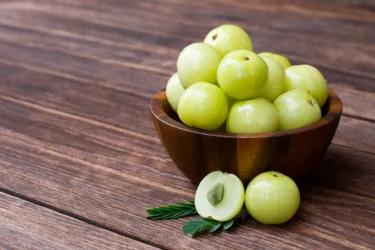
Amla, also called Indian gooseberry, is a popular Ayurvedic herb. Amla contains a vast array of antioxidants, vitamins and minerals. It may also have beneficial properties such as antimicrobial, anti-inflammatory activities and cooling effects. Amla oil, amla juice and dried amla may be used as a possible home remedy for itchy scalp. Amla oil may help reduce scalp irritation and other infections related to the scalp.3Amla powder may provide instant relief to your itchy scalp. Amla powder is made by grinding dried amla fruit. Make a thin paste by mixing this powder with some water. Then apply it to your scalp for 15-20 minutes and wash it off.
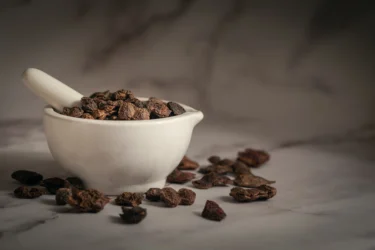
Shikakai has been used for managing dandruff, strengthening hair follicles, etc. It has a low pH value and may be useful for scalp and hair conditioning as well as cleansing. Shikakai powder may be a beneficial home remedy for itchy scalp. A paste made from shikakai powder using water can be applied to the scalp. It may act as a great conditioner and reduce the itch and dandruff.3
Also Read: Shikakai – Uses, Benefits, Side Effects & More!
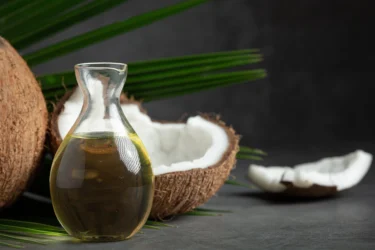
Coconut oil is a great source of antioxidants, vitamin E and K, minerals and lauric acid. It is believed that coconut may have cooling properties because of which it is used by people with Pitta Dosha. It may also have beneficial properties such as antioxidant, antiviral, antibacterial and antifungal properties. Coconut oil may be a good remedy for itchy scalp. It might be useful to fight dryness, reduce dandruff and eliminate scalp infections and fungus-forming units.3 You may directly apply coconut oil to the affected regions of the scalp. Let it sit for some time and then rinse it off.

Aloe vera may also be considered one of the most useful home remedies for itchy scalp. Aloe is collected as a dried juice by cutting the base of the leaves. It may be a beneficial conditioner for hair and scalp. It may benefit in reducing the itching of the scalp and dandruff and may help condition the hair. The prominent benefiting component present in Aloe vera is called aloenin.3Aloe vera gel may be beneficial for itchy scalp. To make aloe vera gel take a leaf and remove the covering of the leaf. Next, scoop the gel with the help of a spoon, put it in a blender and blend it for a few seconds to make a frothy, liquefied gel. Finally, you can apply this gel to your scalp to relieve the itchy scalp.
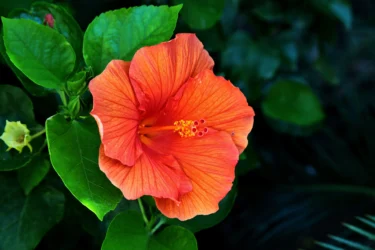
Hibiscus may be used as a home remedy for itchy scalp. It contains vitamins A and C and iron. It may have beneficial properties like antioxidant, antibacterial and anti-inflammatory properties. Hibiscus herbal preparations may be beneficial for itchy scalp. A herbal mask can be prepared using hibiscus flowers and leaves. It may condition your scalp and hair as well as reduce dandruff.3
Take 3 to 4 hibiscus leaves and one flower and grind them together to make a fine paste. You can mix it with any of these (yoghurt, aloe vera gel, almond oil, olive oil or coconut milk). Apply the paste to the scalp for an hour or more and rinse it off with water.
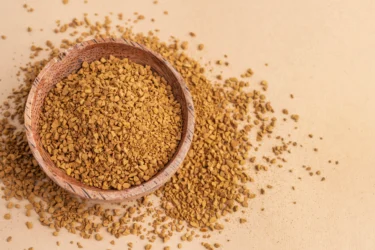
Fenugreek or methi may be a natural, secret ingredient for hair and scalp health. It contains potassium, iron, vitamin C, lecithin and proteins. It might reduce dandruff and may provide a soothing effect to the dry and itchy scalp.3Fenugreek paste may help manage the itchy scalp. To make methi paste, soak 1-2 tablespoons of methi seeds in water overnight. Next morning, grind these seeds into a fine paste using the same water. You can apply this paste to your dry, itchy scalp to reduce the itch.

Curry leaves contain a high amount of minerals like iron and antioxidants such as vitamins C, A, E and folic acid. It may also have antibacterial properties that might help reduce scalp infection. Curry leaves may have a nourishing effect on both hair and scalp.3
Curry leaves paste may be beneficial for your itchy scalp. To make curry leaves paste, take a handful of curry leaves and mix them with yoghurt to achieve a paste consistency. Apply this paste to your scalp and allow it to rest for one hour. Then rinse thoroughly with cold water. Repeat this procedure 2 to 3 times a week for best results.

Castor oil may have antimicrobial, antifungal and anti-inflammatory properties. It contains ricin and resinoleic acid that might nourish the scalp and hair. It may also have the ability to enhance blood circulation. Castor oil might help combat dryness and dandruff, which would be beneficial for itchy scalp.3
Though studies show the benefits of the given herb and home remedies for itchy scalp conditions, these are insufficient. Therefore, there is a need for large-scale human studies to establish the true extent of the benefits of these home remedies on itchy scalp. Thus, these should only be used cautiously and never as a substitute for medical treatment.
Also Read: Best Home Remedies for Oily Scalp and Hair
Lemon juice is one of the most popular scalp itching home remedies. It has antibacterial properties that prevent the yeast Malassezia from causing dandruff. Also, its acidic properties help soften the already existing flakes and calm down the inflammation on the scalp.
Dr. M.G. Kartheeka – MBBS, MD(Pediatrics)
Also Read: Fenugreek for Hair Growth: Reviewed and Confirmed by Effective Studies
An itchy scalp might be indicative of serious conditions, so it is important to treat it properly. Therefore, people should consult a doctor if the conditions mentioned below are seen.
You must not rely on home remedies alone for the treatment of itchy scalp. You should always consult a dermatologist or any other qualified doctor if the symptoms do not improve with home remedies.
Also Read: Natural Home Remedies for Thick Hair
Itchy scalp is medically termed Scalp pruritus. It is recognised by constant irritation and a distressing feeling on the scalp. Itchy scalp is a challenge to diagnose medically. Various factors such as the presence of lice in the head, fungal infection, dandruff, inflammation of the scalp and skin diseases like psoriasis and seborrheic dermatitis cause itchy scalp. However, there are several home remedies for itchy scalp that you can use. Various herbs, including amla, walnut, shikakai, coconut oil, castor oil, neem, tulsi, aloe vera, hibiscus, fenugreek, curry leaves, etc. might be beneficial home remedies for itchy scalp. However, if the condition persists for longer, seek medical attention to avoid further complications.
Also Read: Effective Home Remedies for Silky Hair
The causes of the itchy scalp, such as head lice, are difficult to manage because of the easy spread of head lice. The spread is prevented by avoiding sharing hairbrushes and combs. For chronic conditions such as psoriasis, dandruff or seborrheic dermatitis, a regular doctor’s appointment and treatments according to the conditions are required. A medicated shampoo prescribed by a pharmacist might help with this. Maintaining personal hygiene is essential for treating tinea infection.1
According to doctor’s recommendations, medicated anti-dandruff shampoos, antifungal medicine for tinea capitis, moisturising creams and ointments, head lice treatment, corticosteroid creams for seborrheic dermatitis and psoriasis medications are few of the treatment options for itchy scalp.1 However, people should use these treatments only after consultation with a doctor and if prescribed.
Thyme might be beneficial for reducing dandruff and may be used in scalp rub.3 However, prior to using thyme as a home remedy for itchy scalp, people should consult a doctor.
Tulsi contains the antioxidant vitamin K. It may be an essential herb for eliminating bacterial and fungal infections, which may help with treating an itchy scalp.3 However, using Tulsi to treat an itchy scalp is not recommended without consulting a doctor.
Yes. Flaxseed is a rich source of antioxidants and fatty acids. It may help remove the dead cells from the scalp. Applying flaxseed paste to your hair and scalp may act as a good moisturiser.3 However, people should not use flaxseeds to self-medicate without consulting a physician.
Neem oil or neem extract may be used for treating psoriasis and dandruff. However, it is important to refrain from using neem without consulting a doctor.
1. Health direct [Internet]. Itchy scalp. 2020 [cited 2022 Jul 11]. Available from: https://www.healthdirect.gov.au/itchy-scalp
2. Bin Saif G, Ericson M, Yosipovitch G. The Itchy scalp – scratching for an explanation. Experimen dermato. 2011;20(12):968. Available from: https://www.ncbi.nlm.nih.gov/pmc/articles/PMC3233984/pdf/nihms-331222.pdf
3. Kolekar Y, Tamboli, Firoj, More H, Mulani S, Mali N. Medicinal plants used in cosmetics for skin and hair care. Intern J of Pharmaceu Chem and Analy. 2021;8(2):36–40. Available from: https://www.ijpca.org/html-article/14382
4. Cleveland Clinic [Internet]. 5 Causes (and Fixes) for Itchy Scalp. 2020 [cited 2022 Jul 20]. Available from: https://health.clevelandclinic.org/itchy-scalp-5-common-problems-and-fixes/
Disclaimer: The information provided here is for educational/awareness purposes only and is not intended to be a substitute for medical treatment by a healthcare professional and should not be relied upon to diagnose or treat any medical condition. The reader should consult a registered medical practitioner to determine the appropriateness of the information and before consuming any medication. PharmEasy does not provide any guarantee or warranty (express or implied) regarding the accuracy, adequacy, completeness, legality, reliability or usefulness of the information; and disclaims any liability arising thereof.
Links and product recommendations in the information provided here are advertisements of third-party products available on the website. PharmEasy does not make any representation on the accuracy or suitability of such products/services. Advertisements do not influence the editorial decisions or content. The information in this blog is subject to change without notice. The authors and administrators reserve the right to modify, add, or remove content without notification. It is your responsibility to review this disclaimer regularly for any changes.

Leave your comment...
Comments